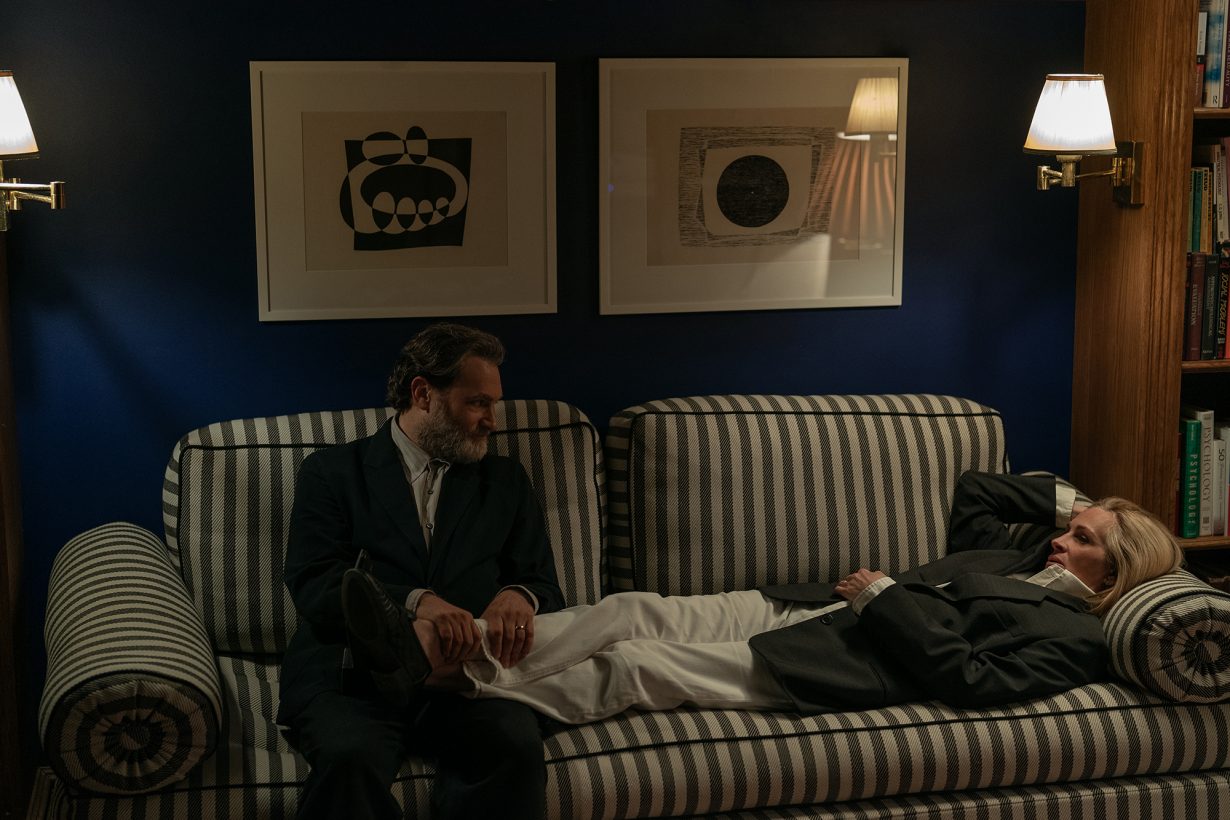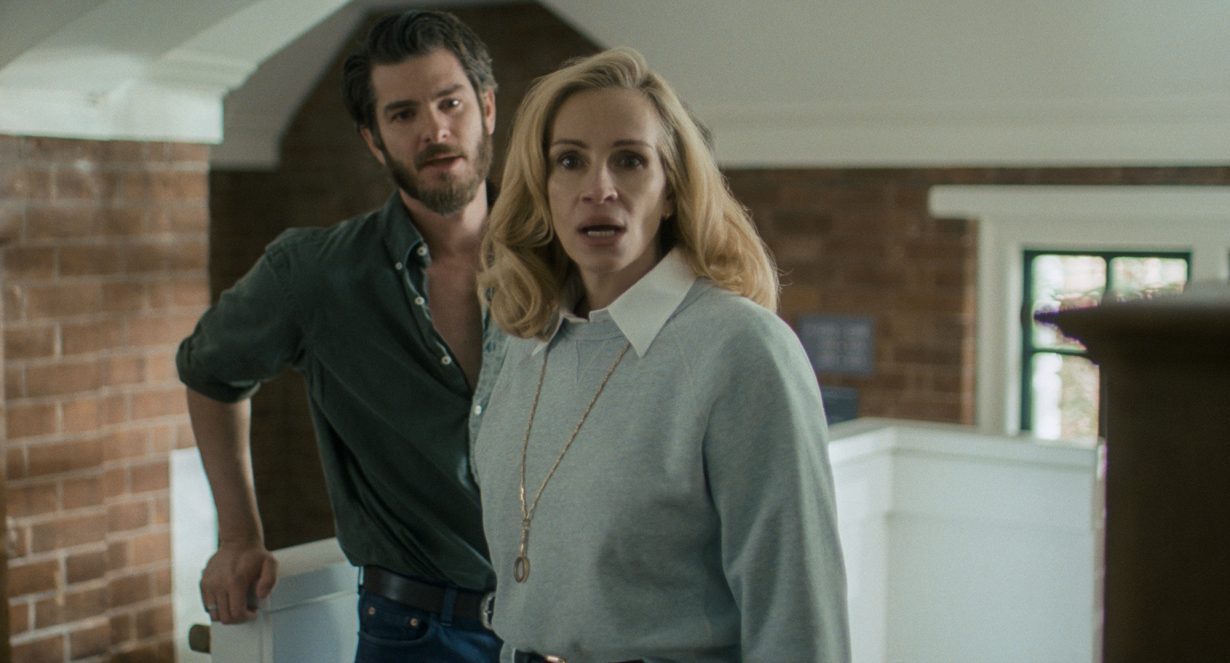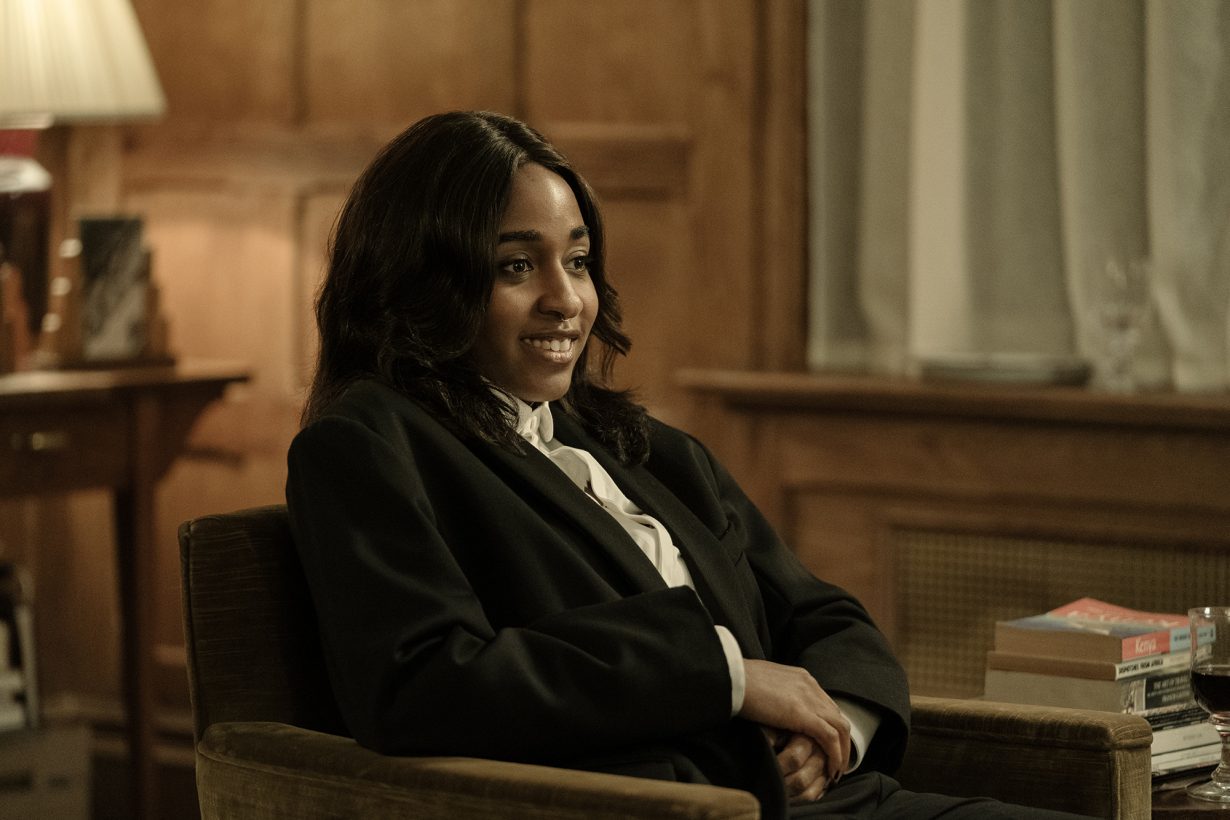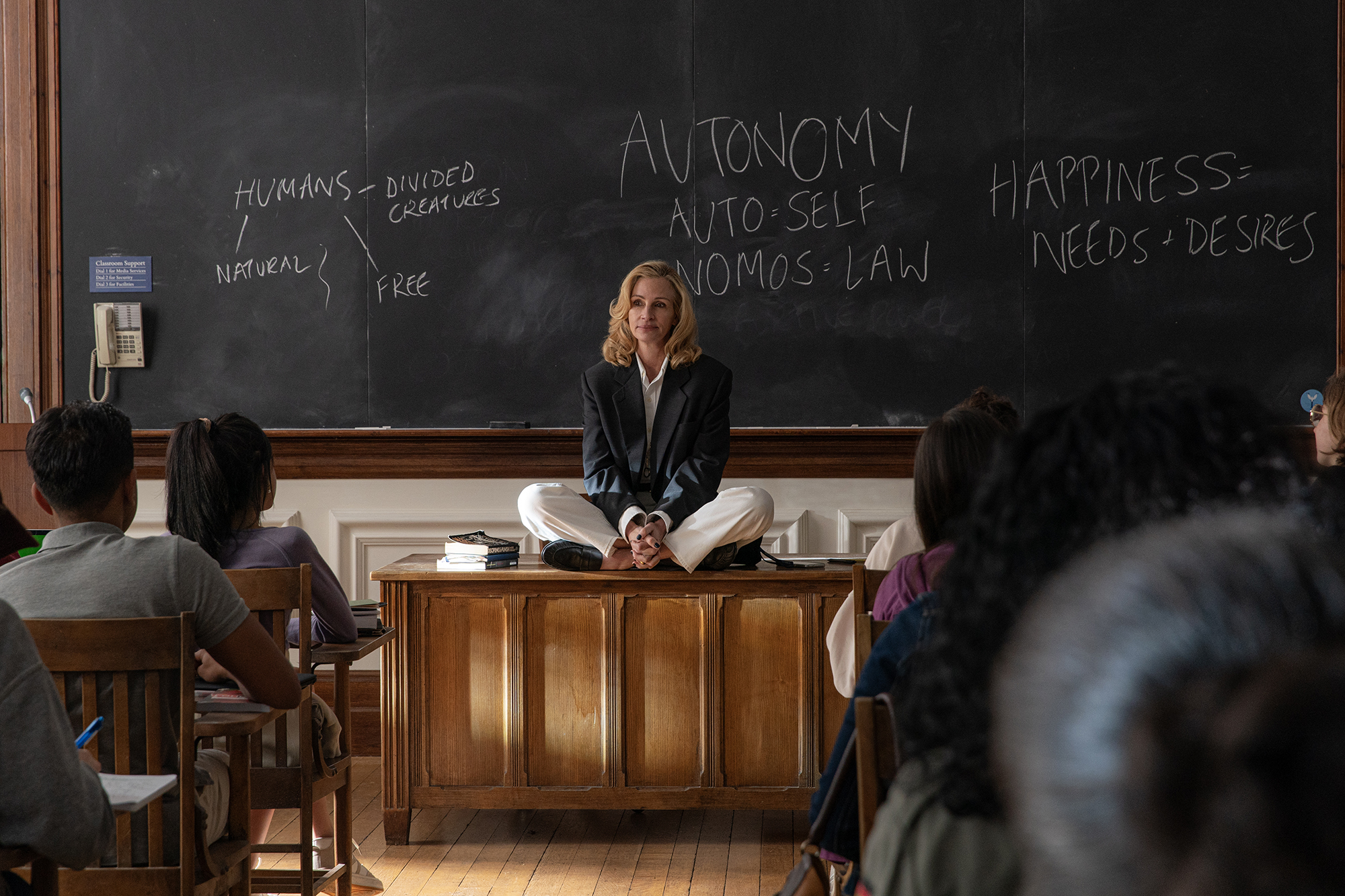Luca Guadagnino’s attempt at a culture-war thriller paints a portrait of an era awash in discontent and paranoia
In After the Hunt, director Luca Guadagnino’s attempt at a culture-war thriller, the old are pitted against the young, Black against white, men against women, gay against straight. At the heart of the film is Alma Imhoff, a fifty-something professor of philosophy at Yale played by Julia Roberts. In this improbably glamorous vision of academia, Alma teaches classes on Foucault while dressed in Celine blazers, white jeans and loafers. She hosts dinner parties at her enormous apartment, where guests take turns holding forth on whether diversity initiatives are discriminating against white guys. She is adored by everyone. Her husband, a Freudian analyst, does all of the cooking. Most importantly for Guadagnino’s plot, Alma is adored by Hank, her white heterosexual friend and colleague in the philosophy department, played by a swaggering Andrew Garfield, and by her protégé Maggie, a Black lesbian student played by Ayo Edebiri.
Yet as the occasionally overlaid sound of a ticking clock lets us know, time is running out on this happy scene. All is not well at home: Alma’s marriage is sexless, her husband emasculated by her success and allure and all the cassoulets he bakes her. When Maggie accuses Hank of sexual assault, Alma, unsure of who to believe, finds herself stuck between a rock and a hard place. Or in Guadagnino’s interpretation of the supposed poles of identity politics, between a Black lesbian and a white heterosexual man. Facing the possibility that taking sides will jeopardise her own career, Alma fails to support either student or friend, and discourages Maggie from pressing charges.


After the Hunt is far from subtle. Maggie has a nonbinary partner, a septum piercing and placard-wielding friends. Hank is a handsy and cocksure vision of male entitlement and dubious virility, who professes his innocence to Alma while slobbering over a great mound of tandoori chicken. (Garfield is well cast – his suspicious smoothness is much better suited to questionable men than it is to romantic leads.) Guadagnino does not show us what happens when the assault allegedly occurred, leaving it to the audience to decide who the villain of the piece is. Did the obnoxious teacher assault a student and assume he could get away with it? Or did the entitled student overreact, ruining a man’s career to cover up the fact that he had caught her plagiarising (a fact Hank presents in his defence)?
In the end, the real meat – the tandoori chicken – of the story isn’t the question of who the victim is. Because this film is all about Alma, who Guadagnino portrays as a diva on the skids: a woman caught in the crossfire of identity politics, having worked her way up through the ranks, dismantling glass ceilings on the way, only to face losing it all because of the punitive environment of the cancel-culture era. Yet one of the flaws of the film is that it’s hard to care much about Alma, or indeed any of the characters, because they are oddly bereft of emotional depth. Despite the many banal signposts to sophistication – passing conversations about the panopticon (the philosophical equivalent of referencing Proust’s madeleine), an abundance of bourgeois clothes, furniture and ceramics – at core they are lifted straight from the menu of identity-based stereotypes served up on social media. Because of this, the film tells us absolutely nothing about the psychology of abusers, or of the unfairly accused, nor does it provide any insight whatsoever into the life, motivations and disposition of Maggie and the generation who she represents – other than the fact that they strike terror into the hearts of Gen Xers.

In place of depth, Guadagnino gives us physical injury. He is, after all, a director who likes his leading ladies wounded. In Challengers (2024) he fucked up Zendaya’s knee; here, he has given Alma stomach ulcers, which means that every now and then she doubles over in pain, or runs to the toilet to vomit. As a consequence of this pain – a blunt metaphor for a sick culture, and evidence of Guadagnino’s operatic predilection for a diva in agony – she is constantly chasing painkillers with whiskey.
It is precisely because of its lack of depth, and its inability to see anyone as human, that After the Hunt paints a fascinating portrait of an era awash in discontent and paranoia, in which people are reduced to walking sets of identity-based markers, and nobody knows who to blame or what to believe. Guadagnino knows only too well who the stock characters of this particular drama are, but beyond that, he seems to have little idea what to do with them, or how to feel about them. The film ends with a fast-forward to five years later, when everyone seems to be fine, if jaded. Maggie is engaged to a hotshot curator. We hear that Hank, whose career in academia was destroyed by the accusations, is now working in politics. Despite almost losing it all – oddly not because of the sexual assault saga, but because she stole prescription sheets from a doctor in order to self-medicate for her ulcers – Alma has finally received tenure, and she has cut her hair. By the time the credits roll, all that’s left to do is to admire Julia Roberts looking lovely in a rollneck sweater, a glamorous cipher for the extraordinary swarm of ill will swirling in the ether that has yet to decide where to land.
Rosanna McLaughlin is the author of Against Morality (Floating Opera Press, 2025)
Read next: When raising your voice is not enough to be heard
